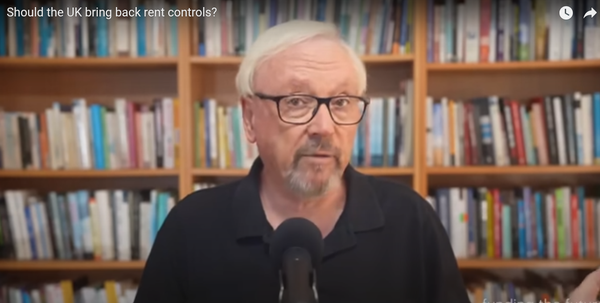High Rents and the Damp and Mould Crisis in Cheltenham: A Tenant Perspective
In Cheltenham, soaring rental prices are creating a hidden health crisis: damp and mould in private rental properties. When tenants spend 30-50% of their income on rent, they face impossible choices between paying bills and maintaining adequate heating and ventilation. This creates the perfect conditions for damp and mould growth, putting tenant health at risk.
The science is simple: damp and mould occur when warm, moist air meets cold surfaces in poorly ventilated spaces. The solution - regular ventilation like the German practice of "crash ventilation" - becomes economically impossible when tenants can't afford to heat their homes properly. This report argues that when landlords charge more than 25% of a tenant's income in rent, the responsibility for preventing damp shifts from tenant to landlord.
The Cheltenham Tenant Union calls for collective action to lobby for systemic change, including council intervention to increase housing supply and regulate short-term lets that remove properties from the rental market.
The Economic Squeeze: When Rent Consumes Life
Cheltenham's rental market reflects a national crisis of affordability. Across the UK, private renters are spending increasingly large portions of their income on housing, leaving little for essentials like heating and utilities.
When tenants dedicate 40-50% of their earnings to rent - far above the recommended 25-30% threshold for housing affordability - every other expense becomes a struggle. Heating bills, already substantial, become luxuries. The choice between warmth and other necessities forces many tenants to under-heat their homes, creating the exact conditions that promote damp and mould growth.
This isn't simply a matter of tenant choice or behaviour - it's a direct consequence of rental prices that exceed what working people can reasonably afford while maintaining a healthy living environment.
Understanding Damp and Mould: The Science Behind the Problem
Damp and mould develop through a straightforward process: when warm, moisture-laden air encounters cold surfaces like walls or windows, condensation forms. In poorly ventilated spaces, this moisture accumulates, creating ideal conditions for mould growth.
Common household activities - cooking, showering, drying clothes indoors - all generate moisture. In a properly functioning home, this moisture should be managed through adequate heating and regular ventilation. However, when financial constraints force tenants to minimise heating and avoid opening windows (which lets expensive warm air escape), moisture builds up with predictable results.
The health implications are serious and well-documented. Exposure to damp and mould can trigger respiratory problems, allergies, and other health issues. Children and vulnerable adults are particularly at risk, making this not just a housing issue but a public health concern.
Ventilation Solutions and Economic Barriers
The German approach to preventing condensation-related damp offers a proven solution. "Stoßlüften" or crash ventilation involves opening windows wide for 5-10 minutes twice daily, rapidly exchanging humid indoor air with fresh outdoor air. This method is more energy-efficient than leaving windows partially open because it only expels the air's heat, not the thermal mass stored in walls and furniture.
However, this solution assumes tenants can afford to reheat their homes after ventilation. For households spending 40-50% of income on rent, the prospect of losing precious warmth - even temporarily - becomes economically frightening. The rational response is to avoid opening windows, trapping moisture and creating perfect conditions for damp and mould.
This creates a cruel irony: the very financial pressure that makes proper ventilation seem impossible also makes dealing with the consequences of poor ventilation - damp, mould, and associated health problems - even more expensive and difficult.
Landlord Responsibility: Where the Buck Should Stop
The Cheltenham Tenant Union argues for a fundamental shift in responsibility. When landlords charge rents that consume excessive portions of tenant income - anything above 25% - they create the economic conditions that make proper property maintenance impossible for tenants.
If a landlord extracts 40-50% of a tenant's earnings, that landlord has effectively removed the tenant's ability to afford adequate heating and ventilation. In this scenario, preventing damp and mould cannot reasonably remain the tenant's responsibility. Instead, properties must incorporate built-in solutions: better insulation, mechanical ventilation systems, or other structural improvements that don't depend on tenant behaviour or financial capacity.
This isn't about shifting blame but recognising economic reality. Landlords who price tenants out of proper property maintenance must take responsibility for the predictable consequences.
The Power of Collective Action: What the Cheltenham Tenant Union Offers
The Cheltenham Tenant Union represents a crucial tool for change: the collective power of organised tenants. Individual renters have little leverage against landlords or local housing markets, but organised tenants can lobby effectively for systemic improvements.
The union's approach focuses on using collective influence to pressure those with real power over the housing market. This includes lobbying councillors, supporting pro-tenant political candidates, and advocating for policies that prioritise renter welfare over property investor profits.
Through surveys, campaigns, and political engagement, the union works to shift the balance of power in Cheltenham's housing market towards those who actually live in rented properties rather than those who profit from them.
Council Powers: Low-Cost, High-Impact Solutions
Cheltenham Borough Council possesses significant influence over local housing supply and affordability. Two key areas offer immediate opportunities for positive change:
Regulating Short-Term Lets
The simplest and cheapest intervention available to the council is regulating Airbnb and similar platforms that remove whole properties from long-term rental markets. During a housing crisis, every property converted to short-term tourist accommodation represents one fewer home available for local residents.
Restricting or banning whole-property short-term lets could immediately increase rental supply, helping to moderate rent increases and improve affordability for local tenants.
Prioritising Truly Affordable Housing
Beyond emergency measures, the council must prioritise building genuinely affordable housing. The key word here is "truly" - affordable housing must be judged by tenant income, not market rates. Properties that cost more than 25% of median local wages cannot be considered genuinely affordable, regardless of how they compare to market prices.
This means moving beyond traditional "affordable" housing definitions that often still require excessive portions of tenant income. True affordability must be measured against what working people actually earn, not what the property market demands.
Political Action: Electing Pro-Tenant Leadership
Sustainable change requires political leadership that prioritises tenant welfare over developer profits. Tenants need to elect councillors who understand that housing is primarily about providing homes for people, not investment opportunities for property speculators.
This means supporting candidates who commit to increasing housing supply, enforcing housing standards, regulating exploitative practices, and prioritising genuinely affordable housing development. Political change at the local level can create the conditions for broader improvements in housing affordability and quality.
Conclusion: A Collective Response to a Systemic Problem
High rents in Cheltenham aren't just making life expensive - they're making homes unhealthy. When landlords charge 30-50% of tenant income, they create economic conditions that make proper heating and ventilation impossible, leading directly to damp and mould problems.
This isn't a problem individual tenants can solve alone. It requires collective action through organisations like the Cheltenham Tenant Union, policy changes by Cheltenham Borough Council, and political leadership that prioritises housing as homes rather than investments.
The solutions exist: regulate short-term lets, build truly affordable housing, and ensure rents don't exceed 25% of tenant income. What's needed now is the organised power to implement these changes.
The Cheltenham Tenant Union provides the vehicle for this collective action. Join the union, participate in surveys and campaigns, and vote for councillors who prioritise tenant interests. Together, tenants can ensure Cheltenham's rental market serves people's needs rather than just property investors' profits.

